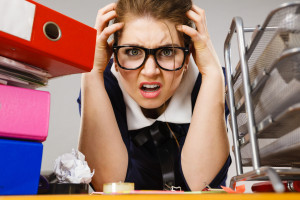 Don’t take this the wrong way. We like you, but we’re not saying your sleep partner and your dentist have to be the same person. But did you know when it comes to preventing severe COVID-19 complications, a similar role can be played by both? So let’s get serious … medically speaking of course.
Don’t take this the wrong way. We like you, but we’re not saying your sleep partner and your dentist have to be the same person. But did you know when it comes to preventing severe COVID-19 complications, a similar role can be played by both? So let’s get serious … medically speaking of course.
What is sleep apnea?
In general, sleep apnea is when one’s breathing suddenly starts and stops during sleep. It’s super serious when the stopping part doesn’t become the starting part soon enough, of course. But there are other down-the-road complications caused or worsened by sleep apnea. These include:
- Daytime sleepiness, fatigue
- Insomnia, sleep deprivation
- Snoring
- Depression, mood swings (e.g., irritability)
- Dry mouth, dry throat
- Headaches
- Weight gain
All of that really … blows. The good news is that weight loss and the use of a CPAP device often do the trick. CPAP stands for Continuous Positive Airway Pressure therapy, which gently forces air down your throat. It prevents the collapse of your airways, limiting snoring and pretty much eliminating the risk you’re going to stop breathing.
Why are sleep partners and dentists important during the COVID pandemic?
Sleep Partners
Your sleep partner can tell you more than, “Hey, you snore a lot.” They can also hear if your breathing (snoring) is, let’s say, consistent and smooth. Or, they can tell you it sounds erratic and that it sounds like you actually stop breathing or start choking.
Well, COVID-19 is all about air flow. The virus is infamous for spreading more easily through the air than through touching surfaces. And it typically establishes itself lower in the lungs than other respiratory viruses. According to the Centers for Disease Control and Prevention, people with moderate to severe asthma may be at higher risk of getting very sick from COVID-19. However, as more and more data is collected more than a year into the pandemic, results are showing that sleep apnea poses an even far greater risk.
According to a study published by an international sleep medicine journal, “patients with OSA (Obstructive Sleep Apnea) experienced approximately 8-fold greater risk for COVID-19 infection compared to a similar age population receiving care in a large, racially, and socioeconomically diverse healthcare system. Among patients with COVID-19 infection, OSA was associated with increased risk of hospitalization and approximately double the risk of developing respiratory failure.
Coronavirus has caused a higher mortality rate for patients with underlying certain health conditions: diabetes, heart disease, lung ailments, and respiratory diseases—like sleep apnea. According to the CDC, the fatality rate for patients with those particular health problems ranges from 6% to 10.5%, compared to 0.9% for otherwise healthy patients. Mortality rate for the flu is roughly 0.1% to 0.2%.
Making matters worse is that sleep apnea can actually cause or contribute to some of those non-sleep apnea ailments, like heart disease. In addition, CPAP machines expel air, making it easier to spread the virus in a household where such a device is present. If you haven’t already, search online for information about cleaning your CPAP device and reducing those odds.
So, sleep partners, stop snoring and start talking. Let each other know if you hear them snoring, not snoring, breathing, not breathing, etc. For newer sleep partners or temporary sleep partners, don’t err on the side of politeness. Letting someone know their breathing didn’t sound right during sleep could keep them out of the hospital and even save their life.
Dentists
Something else that can keep you out of the hospital is going into a dentist’s office for regular exams. In addition to checking for cavities and reviewing X-rays, your dentist also conducts an evaluation of your entire oral cavity, looking for oral or craniofacial abnormalities or other anatomical factors that may be impacting your health or quality of life. A large tongue, a retrusive jaw, enlarged tonsils, and TMJ (lockjaw) symptoms are just some things that indicate one is experiencing sleep apnea. Dentists may also look for airway obstruction, neck circumference issues, and severe overjet (overbite), all of which are correlated with sleep apnea, too.
We’re getting closer to the end of the pandemic, assuming the vaccine is as effective as research says and we stay vigilant when it comes to physical distancing, mask wearing, and more for a little bit more. Putting off dealing with sleep issues and postponing dental appointments until after the pandemic is over is just not a good idea. Help us, help you.







Leave a Reply